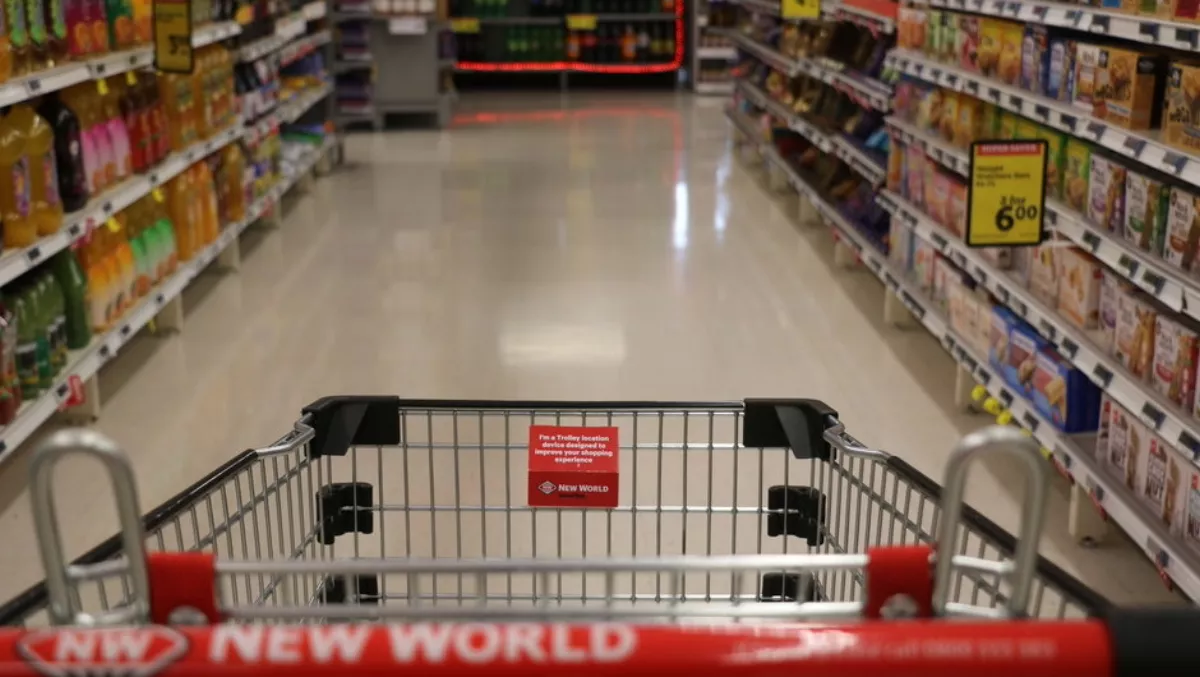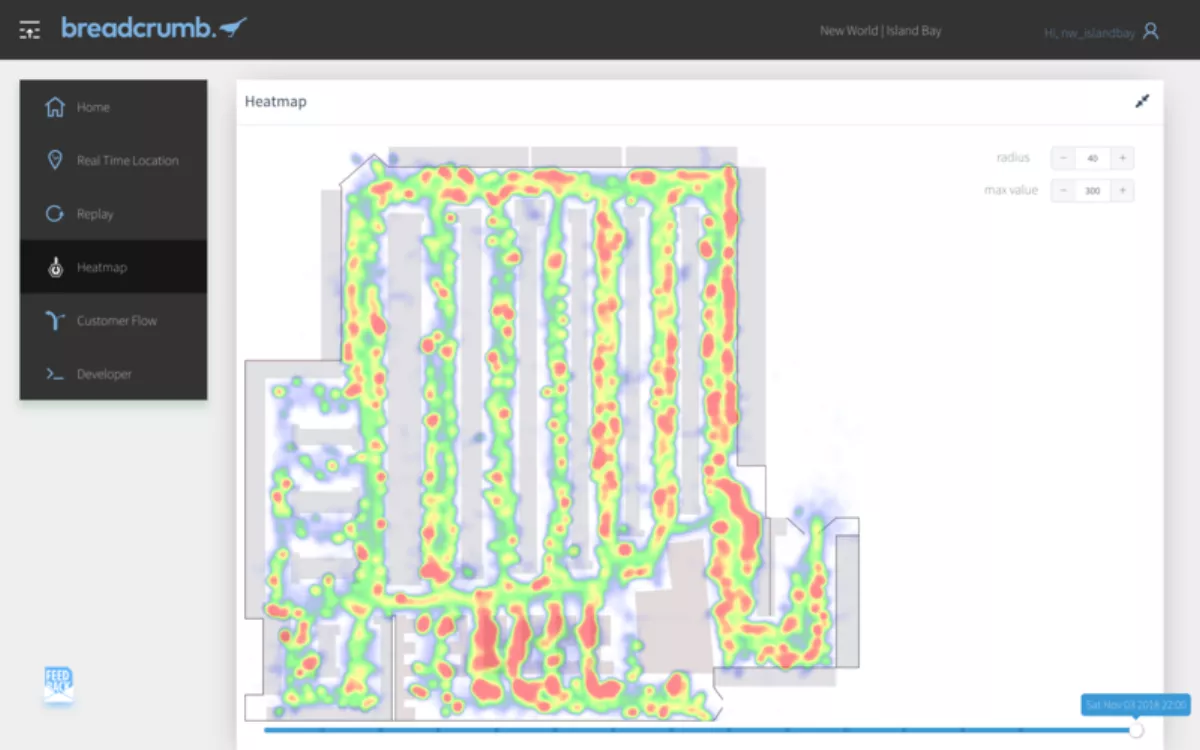
Wellington supermarket trials GPS trolley tracking
New World wants to know how you shop, where you stop, and for how long. That's why if you happen to be shopping at New World's Island Bay supermarket in Wellington, you might notice ten trolleys with a bit of GPS kit attached to the front.
Those ten trolleys have been fitted with a device about twice the size of a bank card, which uses ultra-wideband (UWB) radio technology to record how people use the trolleys. This is all part of a study called the Trolley Location Project.
They can track movement within 10-30cm accuracy, and will be used to provide insights on how each trolley moves, and how long it spends at various stops. So, if you spend 5 minutes trying to look for the best fruit and 10 minutes reading magazines, the trolleys are going to know about it.
But fear not – if you're wary of being tracked in such a way you have the ability to 'opt in' to the study. New World Island Bay owner-operator Amanda Elliot says the ten trolley are clearly marked. She also says the data that the trolleys collect is 'completely anonymous'.
"Everyone shops differently – some like to meander around the store while many others with busy lives like to get what they want as quickly as possible," says Elliot.
"Time is the one commodity that many of us don't have enough of. So if we can organise the store in a way that suits them, their shopping experience will be enhanced.
The company behind the devices, Breadcrumb Data, launched in 2016. It developed its GPS technology through Te Papa's Mahuki Accelerator.
"When Breadcrumb approached us about this we were keen to be part of something that could help us better understand our customers while also supporting Kiwi innovation," says Elliot.
Breadcrumb Data CTO Shengkun Xie says that GPS has been great for outdoor positioning, but it doesn't work too well indoors where people spend most of their time.
"By understanding each trolley's journey we can provide new insights to not only help customers but also improve each supermarket's efficiency," says Shengkun Xie.
"Our platform is also a vast improvement on other systems that use Bluetooth or Wi-Fi which are only accurate down to a few metres.

Foodstuffs North Island (New Tech R-D) Darren Wood helped Breadcrumb Data work the technology into the supermarket environment.
He says that technology has a hard life in supermarkets because of the sheer amount of people who put demand on systems that span a wide area. He says Breadcrumb Data's technology has exceeded expectations.
"Heat mapping in particular means we can use new analytical technologies such as machine learning to predict shopping patterns over time, or identify trends we didn't even know about previously, which in turn could help stores better prepare for peak periods and look at things like how to reduce queueing times," Wood says.
Foodstuffs North Island GM of membership and property, Lindsay Rowles says the tech could open doors to improving store layouts 'based on customers' needs', and improving stock management.
"In-store positioning also has the potential help shoppers find products on their lists using a smart phone app, just as we already use Google Maps on our phones outdoors," Rowles explains.
"There's also the potential to make shopping more informative and fun, so I'm excited by Breadcrumb's trial at New World Island Bay, and looking forward to seeing the end results.
Will it also stop people's unruly antics dropping shopping trolleys down ditches and other odd places? We can only hope.


